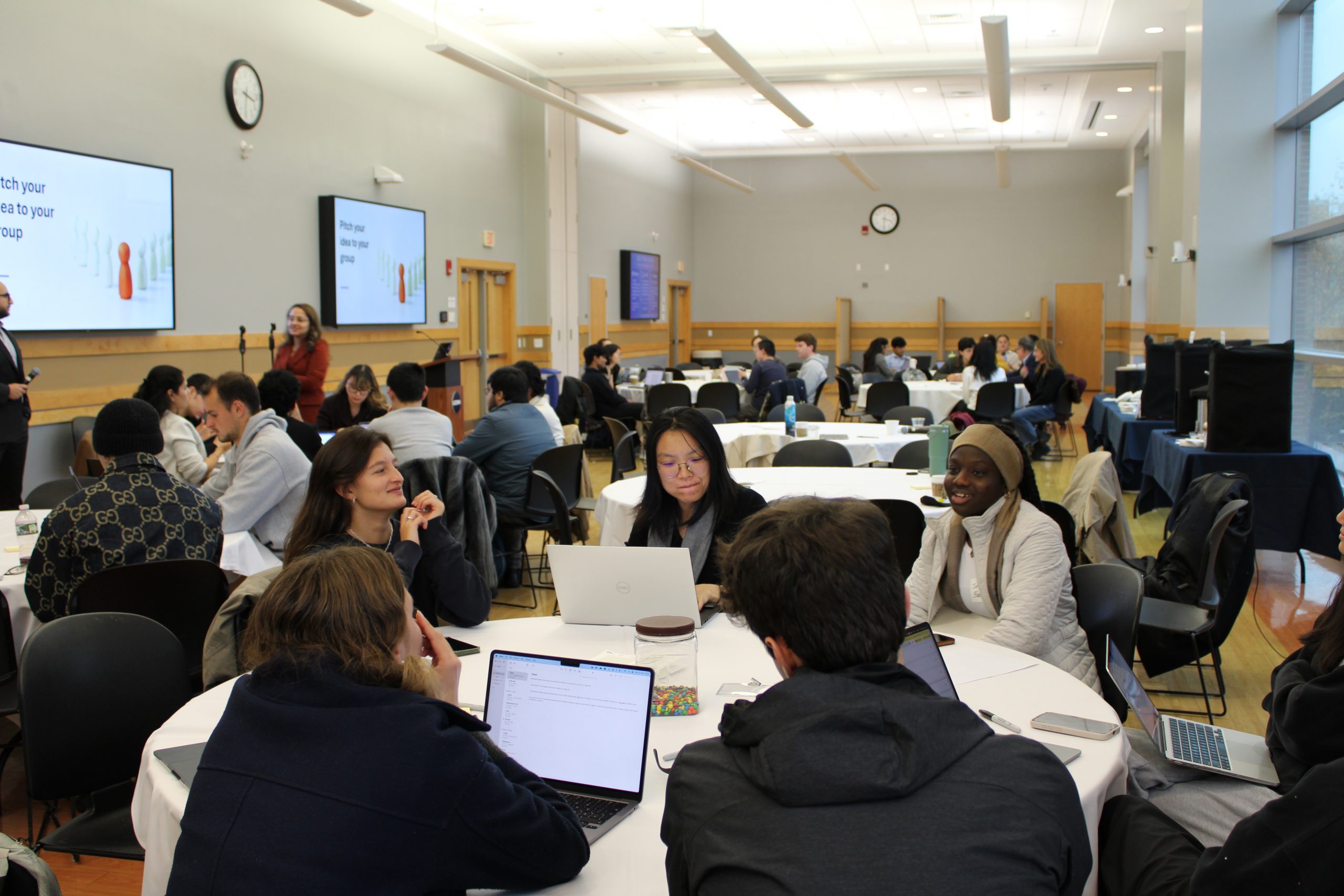The University of Connecticut’s six-year graduation rate has improved for the eighth year in a row.
The most recent data show that 81 percent of the 2004 freshman cohort graduated in six years, up from 78 percent for the previous year’s freshmen.
And that rate is guaranteed to improve again next year: 81 percent of the 2005 freshman cohort have already graduated after five years, so that the six-year rate will certainly improve by this time next year, as the students remaining in that class complete their sixth year.
The situation is also improving among minority students: 72 percent of the minority students who entered UConn in 2004 graduated within six years, while 73 percent of minority students enrolling in 2005 have already graduated after only five years.
Increasing the percentage of students who graduate within six years of joining the University was one of the goals enunciated by President-designate Susan Herbst at the time her appointment was announced.
This is the eighth consecutive year that UConn’s six-year graduation rate has improved, according to statistics released by the Office of Institutional Research. The office also says last year’s six-year graduation rate of 78 percent placed UConn 21st among public research universities in the nation considered peer universities. The 81 percent rate should improve that standing.
“It’s certainly a point of pride,” says Doug Cooper, vice provost for undergraduate education and regional campuses. “It puts us in some very august company, including the University of Georgia and the Georgia Institute of Technology, both universities I know President Herbst is familiar with. [Herbst is currently the executive vice chancellor and chief academic officer for The University System of Georgia.] And she’s right – we must continue our efforts to improve.”
One thing the University does better than nearly all other institutions is to graduate students in as close to four years as possible: UConn ranks fifth among its 58 peers in average time to graduate, at 4.2 years, among students earning a bachelor’s degree in six years or less – mere decimal points from being ranked second.
“We complement our fine academic programs and excellent faculty with a strong cadre of academic enrichment and support programs, as well as a nationally-recognized Retention & Graduation Task Force that meets regularly throughout the year to discuss issues and provide recommendations to senior administration,” says Lee Melvin, vice president for enrollment planning and management.
During the last decade, the University has instituted a range of programs to support students as they work their way toward graduation, starting with the popular First Year Experience programs that bring small groups of students together early in their academic career to learn critical thinking, writing, information literacy, and other helpful skills from faculty or staff; learning communities, where cohorts of students studying the same or a similar discipline can develop as a group; undergraduate research programs that enable students early in their college careers to learn by doing, as they work in faculty labs; and a red flag system that alerts academic advisors and professors when a student is in danger of failure.
Also instituted several years ago was the Finish in Four initiative, a program that promises all students will receive sound academic advice from their advisors. The advisors are charged with ensuring that students are taking 15 credits each semester and that they are taking classes in the correct order for their major.
Many students enter college uncertain about their career paths, which can make selecting classes as a freshman a particularly difficult and daunting task. UConn assigns professional academic advisors to incoming freshmen to help them decide what they want to major in. Those advisors stay with the students through their second year of college, and then pass them on to faculty advisors for career advice in their major.
During the past decade, UConn has added a host of professional academic advisors and support programs to bolster student success.
“The dedication and commitment of our skilled staff gives UConn the edge we seek, as we help our students graduate in a timely manner,” says Cooper.


